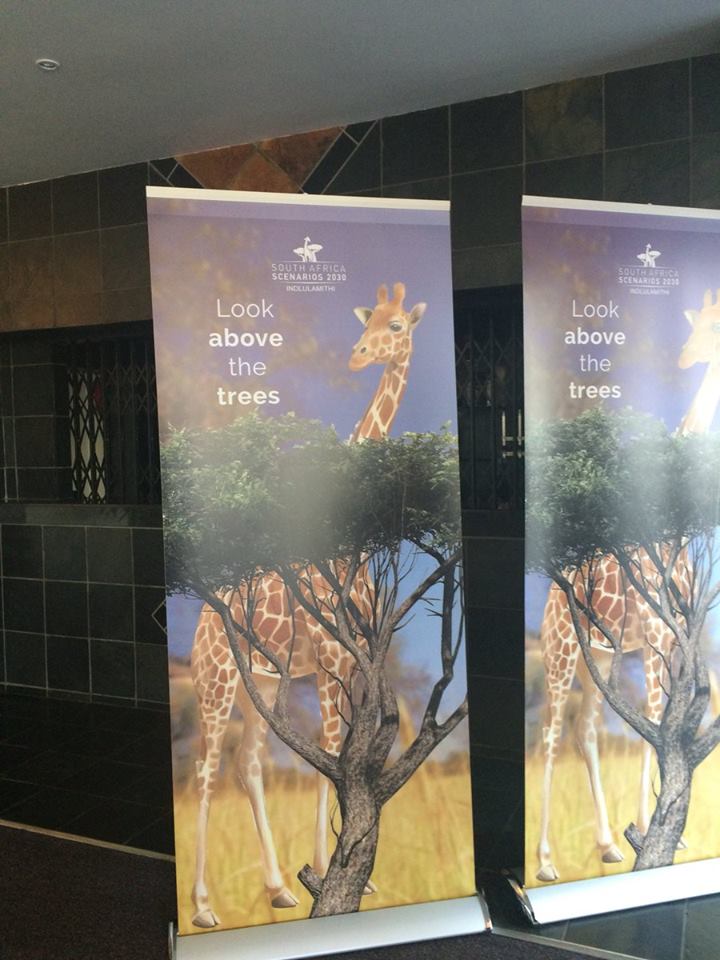
President Cyril Ramaphosa has launched Indlulamithi 2030, a scenario planning project that gives three possible scenarios of what the country could look like in just over a decade.
Indlulamithi paints three pictures of South Africa: the country as it stands, a possible utopia and then spans to the other side of the spectrum, where things look incredibly dismal.
The independent project, which aims to spark a national conversation on “what would a socially cohesive South Africa look like, and to what degree is it attainable by 2030”, was launched on Thursday at the Kyalami Theatre on the Track in Midrand, Gauteng.
President Ramaphosa, who addressed the launch said the project is “active citizenry” in motion and is important to allow the country to plan for the future.
“I believe that scenario planning is an important process to deal with the uncertainties of the future. All of us are meant to engage with the pictures painted by Indlulamithi to see how actions and consequences can play out,” said the President.
President Ramaphosa said he hopes the scenarios will jolt South Africans into action and lead them to lend a hand in building the country they dream of in the year 2030.
The project is an initiative by respected academic Dr Somadoda Fikeni, multinational Anglo American and the Mapungubwe Institute for Strategic Reflection (MISTRA).
Fikeni said when Indlulamithi speaks of social cohesion, it goes beyond the common understanding of the term as it considers issues such as the economy, work and society, environmental justice, reconciliation and redress and crime and safety.
The initiative takes its name from the Nguni word Indlulamithi, which means “above the trees”. The name is symbolic to express the vision of the initiative, to use scenarios to look beyond the current status and look towards possible futures for the country.
“We would like to see our national discourse refocusing our attention. It became apparent in all consultations that we have gone past the phase where you think government, business, youth, non- governmental organisations alone will solve these problems,” said Fikeni.
Indlulamithi 2030 scenarios
The three scenarios painted are the Isbhujwa, Nayi le walk and the Gwara Gwara.
The Isbhujwa forecasts an “enclave bourgeois nation”, where there is a rapid escalation of protests, faster land reform and where the GDP growth averages about 2.2%.
Nayi le walk envisages a South Africa where early childhood development programmes and the first six years of education are better resourced. It also envisions a GDP growth of 4.5% to 2030.
The third scenario — Gwara Gwara — paints a bleak picture of a South Africa in turmoil. In this scenario, income inequality skyrockets and exceeds levels seen in society today. The GDP growth in this scenario is at an all-time low at 1.5%, with periods of deep depression.
According MISTRA researcher Beth Vale, the scenarios are as a result of a qualitative research spanning nine months undertaken by the Indlulamithi team, using 150 core participants.
“Our sample of core participants was 150 people. But whenever we bring research for feedback, we consult a wide variety of people, so I would not be surprised if it is above 500 people.”
Vale said the sample was carefully picked to ensure representivity, and factors such as age, gender and race were factored in to represent the national demographic.
Researcher Xolelwa Kashe-Katiya said the Indluluamithi budget has been tight and hopes to receive more funding following this launch to better refine its work.
“We budgeted R8 million. However, we have not raised that full amount so we are continuously raising funds. MISTRA is also utilising its own researchers as the project goes along.
“Hopefully following the launch, we will have the private sectors and other entities providing us money so we can reclaim funds that have already been utilised through the support that has been provided,” she said.
The Indlulamithi team hopes that the scenarios will find their way into the national conversation and policy documents that will drive the country towards its ideal vision.
https://www.africaprimenews.com/2018/06/20/ict/south-africa-government-considers-implementing-coding-in-schools/